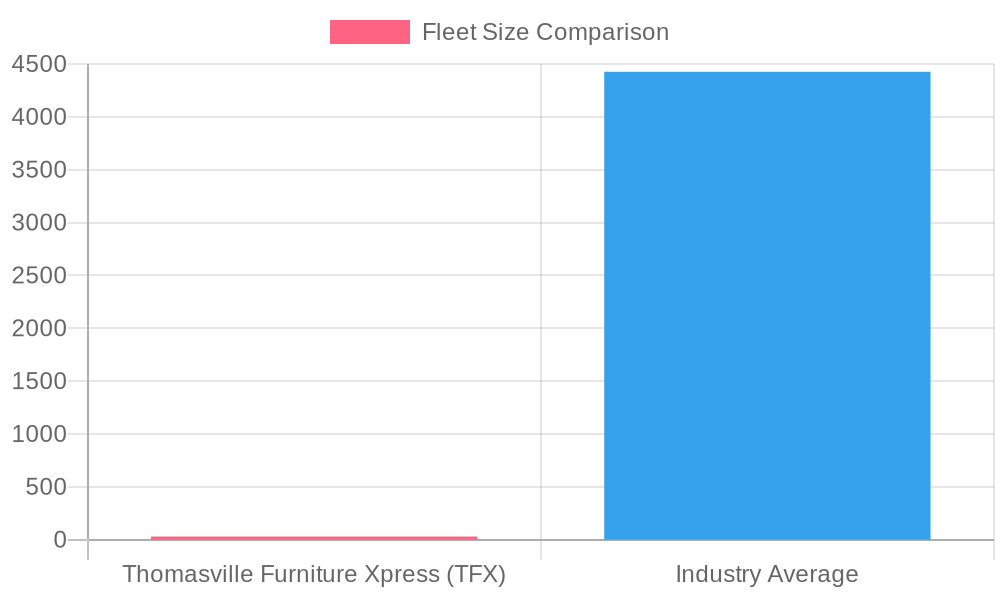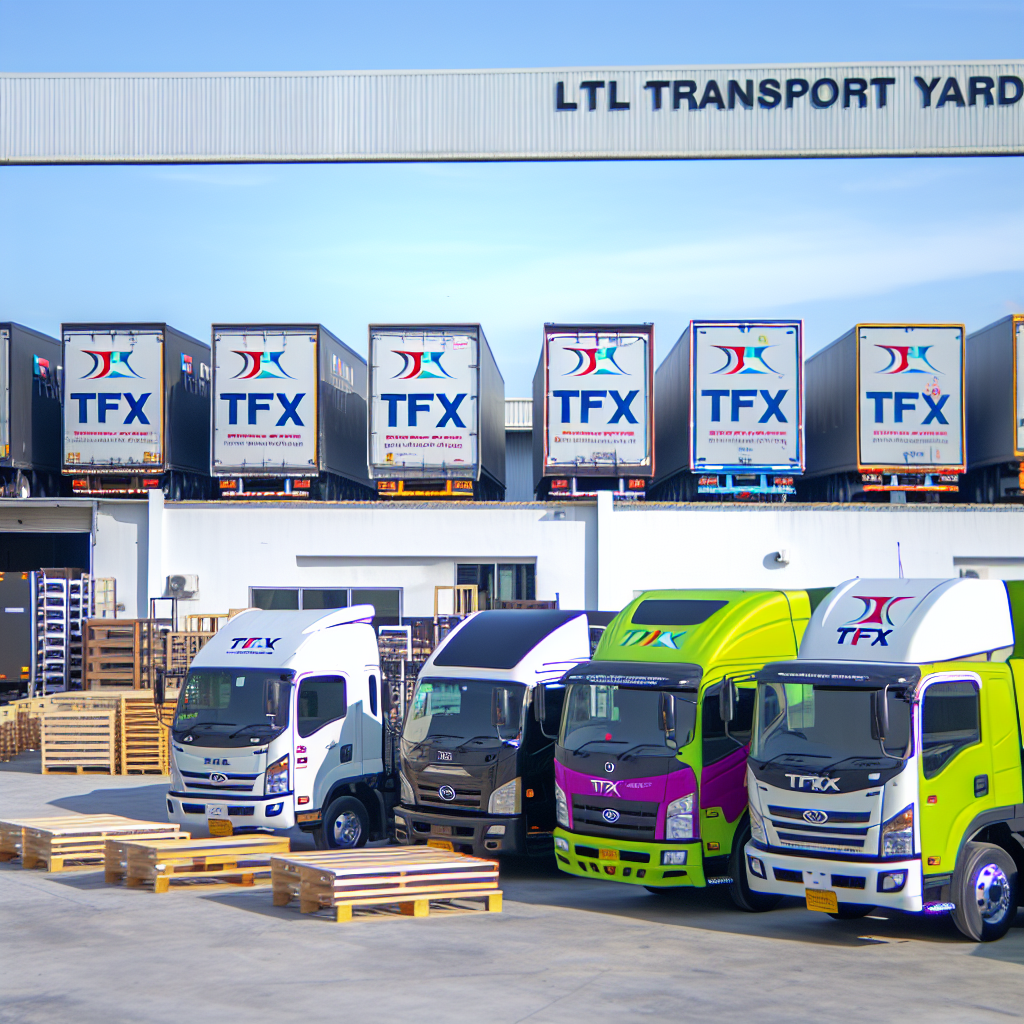Load Planning for Less Than Truckload (LTL) Furniture Hauling
In the rapidly evolving world of logistics, load planning for Less Than Truckload (LTL) furniture hauling stands as a critical factor in maximizing operational efficiency and meeting customer demands. As the trucking industry witnesses a surge in demand for furniture transportation, effective load planning has become more than just a logistical challenge; it is a necessity for success.
With businesses striving to streamline their operations while ensuring timely deliveries, the significance of optimized load planning is amplified. It not only enhances the utilization of resources but also minimizes costs, thereby fostering better profitability. Moreover, the importance of the right load planning strategies becomes even more evident in the context of LTL furniture hauling, where fragile and bulky items require careful handling.
As the furniture sector continues to expand, the need for skilled trucking operations that can adeptly handle such challenges is paramount. Understanding the nuances of load planning in this niche will not only benefit trucking companies but will also elevate the entire industry towards greater efficiency and customer satisfaction.
As Scott Denmark aptly puts it, “Some is still made here, a lot is imported.”
This statement highlights the dual nature of the furniture industry and its significant impact on delivery logistics, emphasizing the complexities involved in sourcing and transporting furniture from various origins. Whether produced domestically or imported, the logistics of furniture transport remain challenging, necessitating efficient load planning and operational tactics for successful delivery.
TFX’s Operational Efficiency
Thomasville Furniture Xpress (TFX) stands as a beacon of operational efficiency in the LTL furniture hauling industry. At the core of TFX’s success are its innovative logistics strategies that enhance overall productivity while ensuring reliability and safety in delivery operations. One of the most significant assets contributing to TFX’s operational prowess is the implementation of a custom transportation management system (TMS). This sophisticated software facilitates improved load planning, real-time tracking, and effective communication among drivers, dispatchers, and customers, thereby optimizing resource allocation and minimizing delays.
In addition to its technological advancements, TFX places a strong emphasis on driver training practices. The company recognizes that well-trained drivers are essential for maintaining safety standards and delivering outstanding customer service. Regular training programs focus on safe driving techniques, product handling skills, and customer interaction, ensuring that drivers are equipped to manage the unique challenges presented by LTL furniture hauling.
Moreover, TFX has adopted a flexible and responsive approach to logistics management, which enables them to handle customer demands efficiently. The company’s commitment to utilizing advanced demand forecasting techniques, along with optimized inventory management, ensures that they can meet varying customer needs, reducing lead times significantly. This proactive approach not only boosts customer satisfaction but also enhances the company’s competitive edge in the market.
Through the integration of modern technology, robust training, and agile operational strategies, TFX achieves remarkable metrics, including quick turnaround times and a low out-of-service rate. Their dedication to operational excellence not only supports the company’s growth but also sets a high standard for others in the industry.
The incorporation of logistics strategies and effective transportation management systems not only streamlines operations but also positions TFX as a leader in the industry.
TFX’s Operational Efficiency
Thomasville Furniture Xpress (TFX) stands as a beacon of operational efficiency in the LTL furniture hauling industry. At the core of TFX’s success are its innovative strategies that enhance overall productivity while ensuring reliability and safety in delivery operations.
One of the most significant assets contributing to TFX’s operational prowess is the implementation of a custom transportation management software (TMS). This sophisticated software facilitates improved load planning, real-time tracking, and effective communication among drivers, dispatchers, and customers, thereby optimizing resource allocation and minimizing delays.
In addition to its technological advancements, TFX places a strong emphasis on driver training practices. The company recognizes that well-trained drivers are essential for maintaining safety standards and delivering outstanding customer service. Regular training programs focus on safe driving techniques, product handling skills, and customer interaction, ensuring that drivers are equipped to manage the unique challenges presented by LTL furniture hauling.
Moreover, TFX has adopted a flexible and responsive approach to logistics management, which enables them to handle customer demands efficiently. The company’s commitment to utilizing advanced demand forecasting techniques, along with optimized inventory management, ensures that they can meet varying customer needs, reducing lead times significantly.
This proactive approach not only boosts customer satisfaction but also enhances the company’s competitive edge in the market. Through the integration of modern technology, robust training, and agile operational strategies, TFX achieves remarkable metrics, including quick turnaround times and a low out-of-service rate. Their dedication to operational excellence not only supports the company’s growth but also sets a high standard for others in the industry.
Key Facts About TFX
Thomasville Furniture Xpress (TFX) has established itself as a significant player in the less-than-truckload (LTL) furniture hauling sector. Here are some key facts about TFX’s operations:
- Fleet Size: TFX operates a fleet of 32 units consisting of 27 owned trucks and 5 leased trucks, along with 53 trailers.
- Driver Employment and Mileage: The company employs 20 drivers, and in 2022, they collectively drove over 1 million miles.
- Delivery Areas: TFX specializes in LTL furniture delivery, serving regions including Delaware, New Jersey, Eastern Maryland, as well as parts of Connecticut, Florida, North Carolina, New York, Ohio, Pennsylvania, Texas, and Virginia.
- Safety Records: Over the past 24 months, TFX has reported a total of six crashes, resulting in two injuries and no fatalities. Their out-of-service rates for drivers and vehicles are at 0.00% and 8.33%, respectively, which are significantly below the national averages of 6.67% and 22.26%.
- Business Operations: Founded shortly after the onset of the COVID-19 pandemic, TFX has rapidly expanded its operations under the leadership of co-owners Scott Denmark and Scott Cruthis. The company combines traditional LTL service with modern technology, enhancing efficiency and safety in their operations.
Through a commitment to blending innovative practices with a strong focus on safety and customer service, TFX continues to strengthen its position in the logistics industry.
| Company | Fleet Size | Delivery Time | Safety Records |
|---|---|---|---|
| Thomasville Furniture Xpress (TFX) | 32 units | Avg. < 5 days | 0.00% out-of-service rate, 2 injuries, no fatalities |
| Snider Fleet Solutions | 50+ units | Avg. 7 days | 1.50% out-of-service rate, 10 injuries, 1 fatality |
| Brielle Furniture | 20 units | Avg. 6 days | 3.00% out-of-service rate, 5 injuries, 0 fatalities |
| Shelba Johnson Trucking | 100+ units | Avg. 8 days | 2.50% out-of-service rate, 20 injuries, 2 fatalities |
| J.B. Hunt | 1,800+ units | Avg. 6 days | 1.00% out-of-service rate, 15 injuries, 0 fatalities |
Importance of Hiring Qualified Drivers
At Thomasville Furniture Xpress (TFX), the emphasis on hiring qualified and experienced drivers is foundational to achieving operational excellence and maximizing customer satisfaction in the LTL furniture hauling sector. By prioritizing the recruitment of seasoned drivers, TFX not only enhances its efficiency but also ensures the safety of its operations, ultimately leading to higher satisfaction levels among its clients.
Ensuring Safety and Compliance
Hiring qualified drivers goes hand in hand with improved safety records. Skilled drivers possess the know-how to navigate complex road conditions and adhere to delivery schedules, thus minimizing accidents and delays. This is reflected in TFX’s outstanding safety performance, which boasts a low out-of-service rate. A study indicated that experienced drivers significantly reduce accident rates, lower insurance premiums, and help maintain compliance with local, state, and federal regulations, all of which are critical in the highly regulated trucking industry (pretatravaillerbtp.com).
Enhancing Customer Satisfaction
The quality of delivery plays a vital role in overall customer satisfaction. Research shows that 26% of negative reviews from major furniture retailers stem from delivery-related issues. Timeliness is a key factor; a survey noted that 40% of consumers would switch brands due to late arrivals (homenewsnow.com). TFX’s strategy of hiring qualified drivers has positively impacted their delivery experience by ensuring reliability and efficiency. As Scott Denmark aptly states, “We try to hire experienced and qualified drivers and preach safety all of the time.”
Building a Productive Work Environment
Furthermore, qualified drivers correlate with reduced turnover rates, which is crucial for operational continuity. A stable workforce helps TFX enhance its service consistency, creating a better work environment that further contributes to driver satisfaction. This positive work atmosphere translates to better customer service, thereby fostering long-term loyalty among TFX’s clients (serviceclub.com).
Conclusion
In summary, TFX’s commitment to hiring qualified drivers is a strategic advantage that strengthens its competitive edge in the LTL furniture hauling industry. By ensuring safety, improving delivery assurance, and fostering a stable workforce, TFX not only meets but often exceeds customer expectations, leading to overall business success. This focus on driver quality is a testament to TFX’s dedication to operational excellence and customer service excellence.
As Ed Christiansen emphasizes, “I could sell $10 billion worth of furniture, but if nobody delivers it to me what good is it?” This underscores the critical role of reliable delivery in the furniture business, highlighting that strong logistics and efficient operational strategies are essential for success.
Conclusion: Operational Insights for LTL Trucking Efficiency
In the competitive landscape of LTL trucking, particularly in the furniture hauling niche, operational efficiency is paramount. The key insights derived from the successful practices of Thomasville Furniture Xpress (TFX) illustrate essential strategies for enhancing efficiency in this domain. Firstly, effective load planning is crucial. TFX employs advanced transportation management software, which optimizes load assignments and improves resource utilization, directly impacting delivery timeliness and customer satisfaction.
Next, the importance of rigorous driver training cannot be overstated. By investing in the continuous education of their drivers, TFX not only promotes safe driving practices but also enhances customer interaction skills, leading to improved service quality. This focus on qualified drivers aligns with TFX’s impressive safety metrics, showcasing that well-trained personnel can reduce accident rates and enhance compliance with regulations.
Moreover, the integration of technology in operations provides a significant advantage. The real-time tracking capabilities facilitated by TFX’s custom TMS allow for enhanced visibility and communication across the transport chain, thus mitigating delays and optimizing routes. This technological edge showcases how logistics can adapt to meet growing customer demands while maintaining operational competence.
Additionally, the flexible logistics management employed by TFX, including demand forecasting and efficient inventory management, supports the company’s ability to respond quickly to customer needs while lowering lead times.
Actionable Takeaways for Enhancing Operational Efficiency
- Invest in Technology: Implement advanced transportation management systems to streamline load planning, track shipments in real-time, and enhance communication.
- Prioritize Driver Recruitment and Training: Focus on hiring experienced drivers and provide robust training programs that address safety, product handling, and customer service skills.
- Utilize Demand Forecasting: Emphasize demand forecasting and effective inventory management to better respond to fluctuating customer needs and reduce delivery times.
- Maintain Safety Standards: Foster a culture of safety through regular training and compliance checks to minimize accidents and out-of-service rates.
- Adapt to Market Changes: Stay responsive to market trends and customer expectations by regularly reviewing operational processes and making necessary adjustments.
By embracing these strategies, LTL trucking companies can navigate the complexities of the furniture hauling market, enhancing both their operational efficiency and customer service delivery. TFX serves as a model in this regard, demonstrating that with the right tools and practices, significant improvements in logistics operations are achievable.


